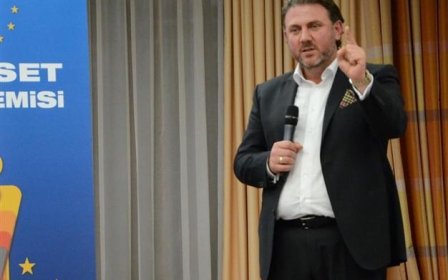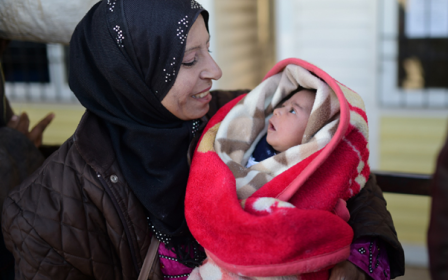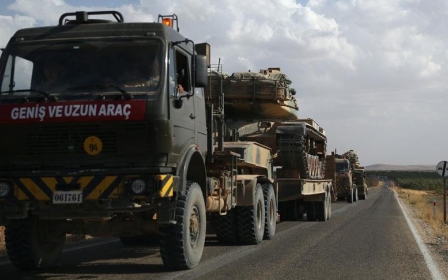Turkey's Erdogan accuses Germany of 'harbouring terrorists'
Turkish President Recep Tayyip Erdogan on Thursday accused Germany of being one of the world's worst countries for harbouring "terrorists", saying Berlin had not responded to requests to hand over suspects from the 15 July failed coup.
Erdogan said that he had handed German Chancellor Angela Merkel around 4,000 dossiers about suspects in Germany, but had received no response.
With Merkel on Wednesday calling a media crackdown in Turkey "highly alarming", Erdogan said Germany was more interested in voicing concern for newspapers, which he said "support terror groups".
Ankara accuses the US-based preacher Fethullah Gulen of being behind the coup, saying he leads a group called the Fethullah Terror Group (FETO). Gulen denies the charges.
"You (Germany) are going to be remembered in history for playing host to terror," Erdogan said in a speech at his presidential palace in Ankara.
"We are worried that Germany is turning into FETO's back garden," he said, also accusing the country of hosting members of the outlawed Kurdistan Workers Party (PKK) and the Marxist-Leninist Revolutionary People's Liberation Party–Front (DHKP-C).
"Germany has become one of the most important countries for hosting terrorists", he said, noting also that the country had seen racist attacks against Turks living there.
Erdogan did not mention which suspects Ankara wanted to see extradited from Germany over the coup, but several figures, in particular from the legal sector, are believed to have fled to Germany.
German Foreign Minister Frank-Walter Steinmeier rejected the charge, saying he could "in no way follow Erdogan's comments on the security situation in Germany".
He said Germany wished for "close and constructive relations" with Turkey, but added that "this must not lead us to stay silent on threats to freedom of the press and speech".
Relations between Ankara and Berlin have been strained in the wake of the failed coup, with Germany repeatedly expressing concern over the scope of the crackdown on suspects.
Merkel on Wednesday said it was "highly alarming that freedom of the press and speech are being restricted again and again" two days after Turkish authorities detained 13 journalists from the opposition Cumhuriyet newspaper.
They included the paper's editor-in-chief Murat Sabuncu and its prominent editorial advisor and columnist Kadri Gursel.
The paper's former editor-in-chief Can Dundar, who was given a jail sentence in a previous case and also served with an arrest warrant, is currently in Germany.
The official Anadolu news agency said Wednesday that Berlin had issued Dundar with a document allowing him to travel after his Turkish passport was cancelled.
This article is available in French on Middle East Eye French edition.
Middle East Eye propose une couverture et une analyse indépendantes et incomparables du Moyen-Orient, de l’Afrique du Nord et d’autres régions du monde. Pour en savoir plus sur la reprise de ce contenu et les frais qui s’appliquent, veuillez remplir ce formulaire [en anglais]. Pour en savoir plus sur MEE, cliquez ici [en anglais].




